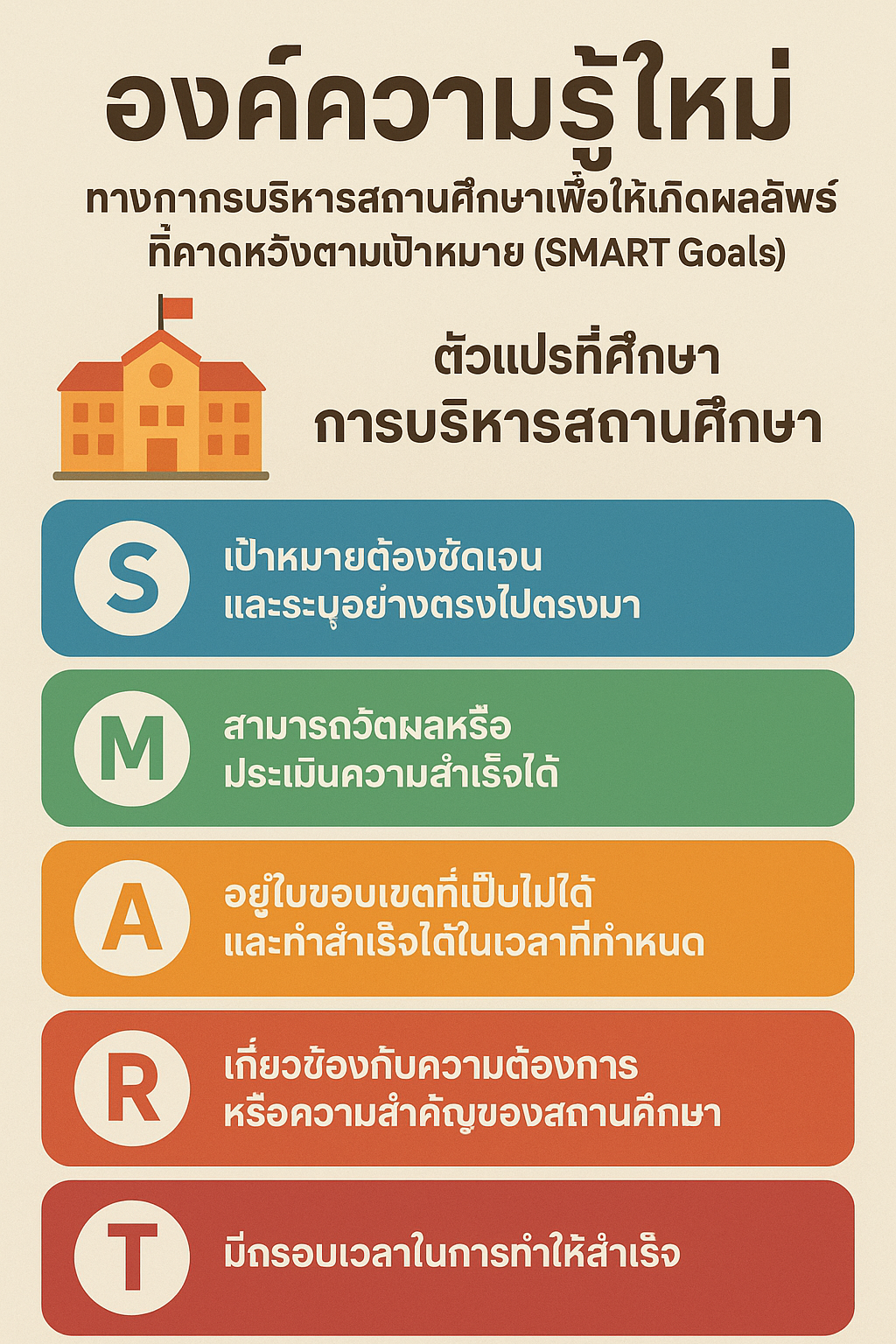GUIDELINES FOR SCHOOL MANAGEMENT TO ACHIEVE EXPECTED RESULTS ACCORDING TO SMART GOALS IN THE BANGLAMUNG SCHOOL GROUP UNDER THE CHONBURI PRIMARY EDUCATIONAL SERVICE AREA 3
Keywords:
School Management, Expected Results According to SMART goals, Office of the Basic Education CommissionAbstract
This independent study aimed: 1) to examine the current and desired condition of school management to achieve expected results according to SMART goals. 2) to propose guidelines for school management to achieve expected results according to SMART goals in The Banglamung school group under The Chonburi Primary Educational Service Area Office 3. The sample was 161 school administrators and teachers. 3) The research instrument was a questionnaire, which had a content validity 0.67 and a reliability coefficient was 0.99. The statistical for data analysis were frequency, percentage, mean and standard deviation.
The results revealed that the current condition of school management to achieve expected results to SMART goals was at a high level, while the desired condition was at the highest level. The guidelines for school management to achieve expected results according to SMART goals in The Banglamung school group under The Chonburi Primary Educational Service Area Office 3 was promoting 1) the participation of teachers, staff, students, parents, and the community in setting goals, planning, and implementing academic activities. 2) the participation of teachers, staff, students, parents, and the community in setting goals, planning, and implementing budget management. 3: Promoting a culture of lifelong learning among teachers and students, supporting knowledge exchange, and building learning communities.
References
พระมหาประยูร ธีรวโร (ตระการ). (2565). วิสัยทัศน์ของผู้บริหารสถานศึกษาสู่ความเป็นเลิศ. วารสารบวรสหการ ศึกษาและมนุษยสังคมศาสตร์. 3(1), (มกราคม –มิถุนายน 2565).
เรืองโรจน์ พูนผล. (2567). SMART Goal เทคนิคการตั้งเป้าหมายที่ทำง่ายและใช้ได้จริง. สืบค้นเมื่อ
เมษายน 2568. จาก https://www.disruptignite.com/blog/smart-goal#section1.
ลัทธกิตต์ ลาภอุดมการณ์. (2566). ทำไมคุณภาพการศึกษาไทยแย่ลงทุกปี. กรุงเทพฯ: ธนาคารเกียรตินาคิน.
สัมมา รธนิธย์. (2560). หลักทฤษฎีและปฏิบัติการบริหารการศึกษา. พิมพ์ครั้งที่ 4. กรุงเทพฯ: ข้าวฟ่าง.
สุนันท์ รุ่งอรุณแสงทอง และสงวน อินทร์รักษ์. (2561). การบริหารสถานศึกษาขั้นพื้นฐานให้เกิดประสิทธิภาพ. วิทยานิพนธ์ปรัชญาดุษฎีบัณฑิต สาขาวิชาการบริหารการศึกษา. บัณฑิตวิทยาลัย, มหาวิทยาลัยศิลปากร, นครปฐม.
Doran, G. T. (1981). "There’s a SMART way to write management's goals and objectives." Management Review, 70(11), 35-36.
Fayol, H. (1916). General and Industrial Management (Washington, DC: Robert Brookings Charles Scripner’s Son), 5-6.
HREX.asis. การนำหลักการ SMART มาตั้งเป้าหมายขององค์กรให้ชัดเจนและมีประสิทธิภาพ. สืบค้นเมื่อ 12 เมษายน 2568 จาก https://th.hrnote.asia/orgdevelopment/190910-smart-organization- goal/#_SMART-2.
Jobsbd. (2018). วิธีตั้ง SMART Goal เทคนิคกำหนดเป้าหมายแบบมีปลายทาง. สืบค้นเมื่อ 12 เมษายน 2568 จาก https://th.jobsdb.com/th/career-advice/article/what-is-smart-goal.

Downloads
Published
How to Cite
Issue
Section
License
Copyright (c) 2025 คณะศิลปศาสตร์และการศึกษา วิทยาลัยอินเตอร์เทคลำปาง

This work is licensed under a Creative Commons Attribution-NonCommercial-NoDerivatives 4.0 International License.
This article is published under a Creative Commons Attribution-NonCommercial-NoDerivatives 4.0 International License (CC BY-NC-ND 4.0), which allows others to share the article with proper attribution to the authors and prohibits commercial use or modification. For any other reuse or republication, permission from the journal and the authors is required.

